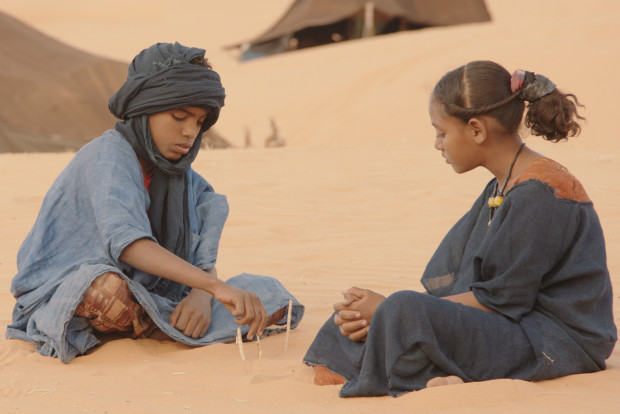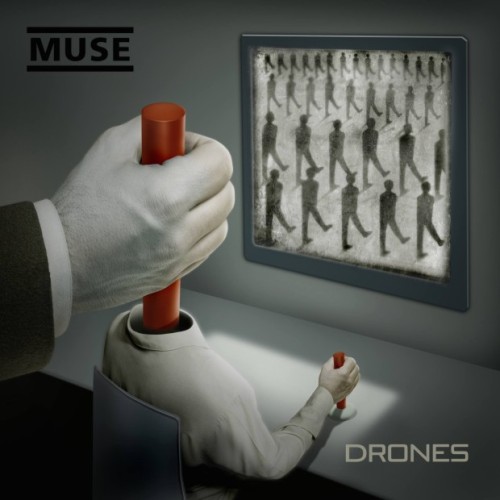In the world right now, there is a cultural war unfolding. It’s a conflict of moderation against militancy as ordinary Muslims try to sustain their way of life in the face of violence and campaign of fear in the form of ISIS, whose commitment to brutality may well be one of the most legitimately terrifying elements of contemporary society. The group hold a unique position; by flooding the news with hyper-flashy, well edited YouTube videos of their barbarity, they’ve ensured their constant presence on television screens and on and offline publications globally. This monstrous self-promotion has put any kind of artistic discussion of this group in jeopardy. How do you critique the cruelty of that which revels in its own inhumanity? The answer is a film like Abderrahmane Sissako’s Timbuktu. It’s a brave and uncompromising work that deals with a disturbing and complex subject manner with reverence, wit and, most importantly, unwavering humanity.
The film is nominally about the city of Timbuktu as a collection of heavily armed, religious zealots take control of the city and bring with them a medieval morality and justice system. Rather than adopting a traditional through line, the film opts instead for a multi-character vignette approach, with each story existing independent of the other, yet adding to a collective whole. In this case the whole is the idea of a cultural war and the war of attrition between the defilers and the defiant. This idea is visually surmised in the opening images: a creature of prey flees from a jeep while a collection of traditional idols are shot to pieces as target practice. These images are mirrored at the film’s end to absolutely heart wrenching effect, driving home the cyclical nature of this conflict and its unfortunate escalation.
One of the more intriguing aspects of the production is Sissako’s presentation of women. It’s unfortunate that we in the West perceive muslim women as subservient and weak willed, because if Timbuktu is to be believed they are they most staunchly defiant among us. Sissako’s women are maternal and caring, willing to defend the rights of their children in spite of barely veiled threats, but they’re also artists who want to use their talents in spite of the punishment, business people who want to be able to practice their livelihoods without being forced into clothing that will prevent them from working. Their presentation feeds into another of the film’s major themes, which is the idea of being a good Muslim.
Midway through the film, the militant leader, Abdelkerim, and a more moderate imam have a discussion relating to the group’s actions and their view of justice. While Abdelkerim is able to justify all of the group’s actions through the Qu’ran, the Imam counters with further quotes from the text that refute his claims while showcasing the peaceful elements of Islam. It’s a thoroughly compelling scene that highlights just how detached the extremists are from the teaching of Allah. They kidnap young women to take as wives using the justification that a good Muslim should be able to take any wife he so chooses. They introduce a prohibition on smoking, drinking and other immoral acts, but when no one is looking a few extra cigarette butts are always nearby. They’ll debate the merits of Messi versus Zidane before taking a group of young men’s only football, forcing them to play with an imaginary ball. They’ve read the words but missed the meaning. Sissako seems to believe in the more positive elements of Islam and is trying to make the distinction between the abusers and victims all the more clear. They are monsters masquerading as monks, hate mongers hiding as heroes, long fanged predators stalking their prey promoting peace through the flaming sword. Sissako ultimately wants to make it very clear that these thugs are not real Muslims, nor are they true citizens of this city. They are stains on our collective consciousness who seek to change the world through bullets, but as the film symbolically suggests, once the dust has settled, the landscape remains the same. Will Murphy






